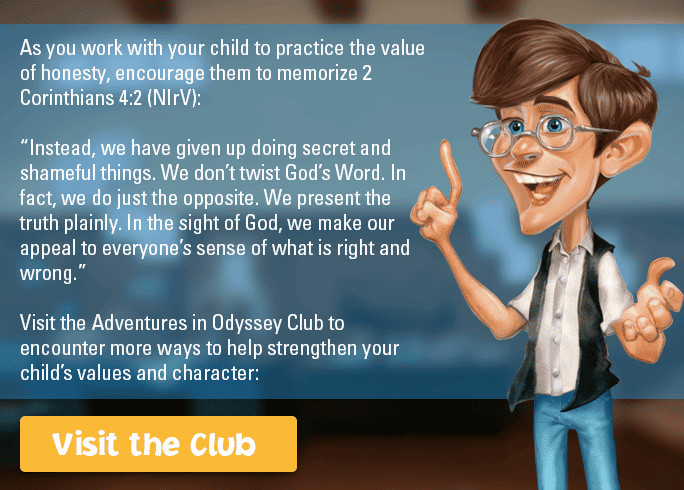
How to Raise Strong and Confident Daughters
When your daughter recognizes that you believe in her, she begins to believe in herself, and has confidence to pursue her dreams.

These five tips can help you create a culture of honesty in your home.
Countless lies circulate around us every day. Social media, news outlets, politicians – it seems like everyone is lying. And many people are. Most people lie at least one to three times every ten minutes when meeting others for the first time. Nine out of ten middle schoolers say they cheat on their homework. One survey of 70,000 high school students indicated that 95 percent had cheated academically in some way. Dishonesty is a prevalent lifestyle choice. How do we stop our children from lying and teach them honesty in a world saturated with deceitfulness?
First, it’s helpful to know why kids lie.
Our conscience helps us to know when something is right or wrong. By telling repeated “white lies,” the brain becomes desensitized and overrides the conscience. The more frequently a child tells lies, however small, the higher the likelihood of telling more elaborate lies in the future.
The Bible has a lot to say about lying and warns us about its destructiveness. Here are a few verses that describe God’s perspective on lying:
These verses only scratch the surface of the Bible’s emphasis on telling the truth and avoiding lies. Knowing the importance of telling the truth, how can we get our kids to stop lying and focus on the truth?

Here’s the good news: Every day presents new opportunities for moms and dads to promote honesty and help children successfully navigate their social and emotional worlds. Here are five practical ways parents can foster truthfulness.
If you lie, your kids are likely to do the same. Show them you’re willing to tell the truth even if it comes at a cost. If you have told a lie, have the courage to apologize and infuse the moment with the truth rather than letting the lie linger. You have the opportunity to model what it looks like to show respect to others in this way.
Self-control is a predictor of later success for kids. Enabled by self-control, your kids can contribute to others’ lives in positive ways. Contributors value relationships over personal comfort and the demands of their own emotions. Consumers, on the other hand, look out for themselves. Help kids see that life is more about learning to control ourselves and our own emotions to genuinely love others rather than seeking personal happiness at any cost.
Help kids see honesty as courageous. Point out the strength of truth-telling and how important it is for relationships and personal growth, even when it is a challenge to do so.
Kids need to learn the possible impact of lies on other people. Help them expand their world beyond their own emotions to think about what others may be feeling. Kids can actively learn empathy by the age of two.
Consider watching a movie or reading a book that provides examples of honesty. The more kids are exposed to the goodness of honesty, the more likely they are to mirror honest behavior and decision-making. Take time to celebrate in creative ways (i.e., you and your family enjoy a sweet treat together when someone chooses truth over a lie in a courageous way).
One of the best ways to stop a child from lying is to create a culture of honesty in your home. Use your creativity and imagination as you intentionally correct, guide, and model the importance of truth-telling. For instance, in Ephesians 6, Paul describes how we should daily put on the full armor of God. One of the critical pieces in the armor of God is the Belt of Truth. As your family gets dressed in the morning, have your kids imagine putting on the Belt of Truth as part of their wardrobe.
Honesty and integrity help create a culture of trust, allowing us to experience secure, lasting, and dependable love.
As you teach honesty in your child’s life, you get to practice and strengthen the 7 Traits of Effective Parenting in your life. Through your actions and words, you can get your child to stop lying through:
For more practical tips, visit www.focusonthefamily.com/parenting.